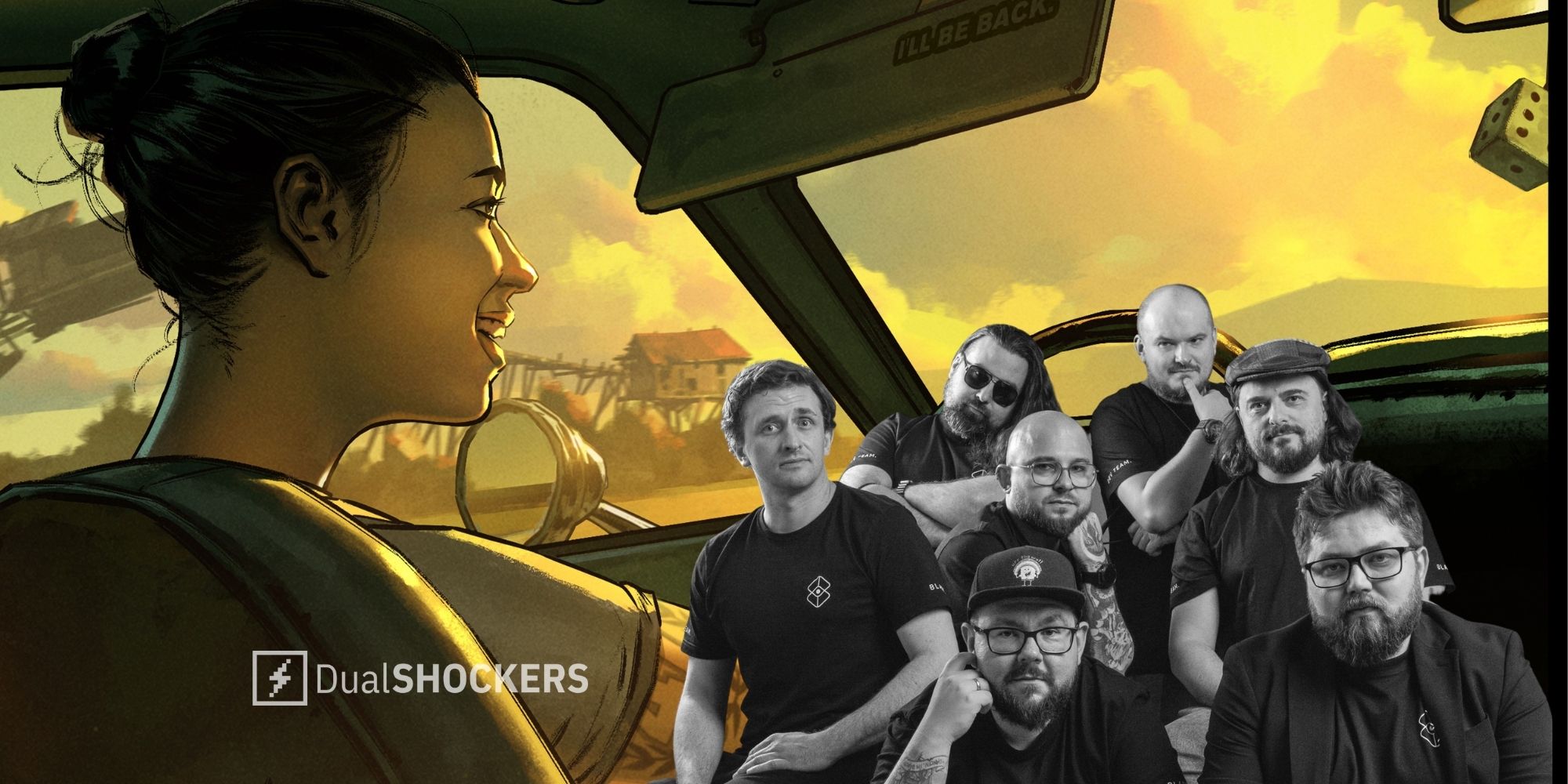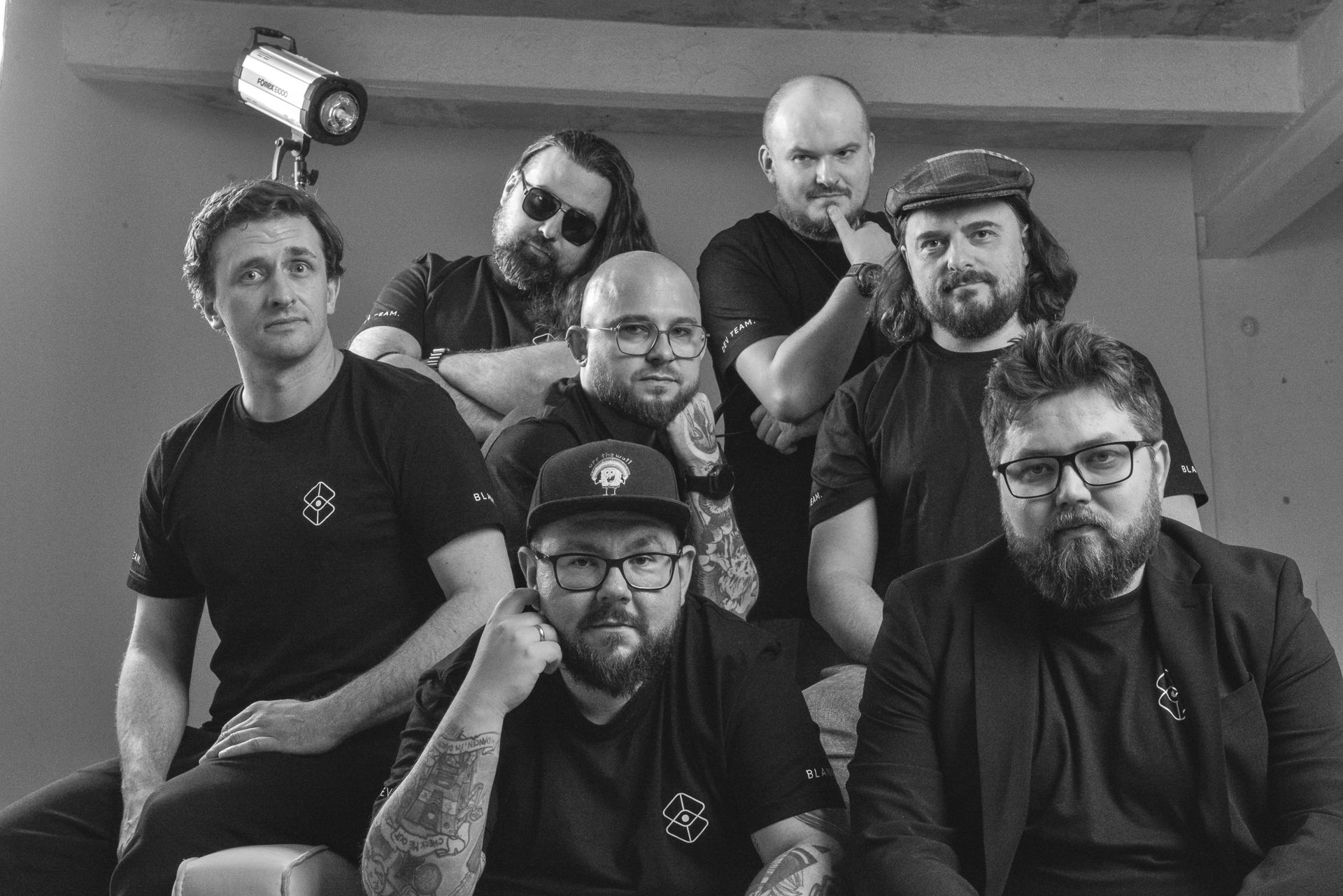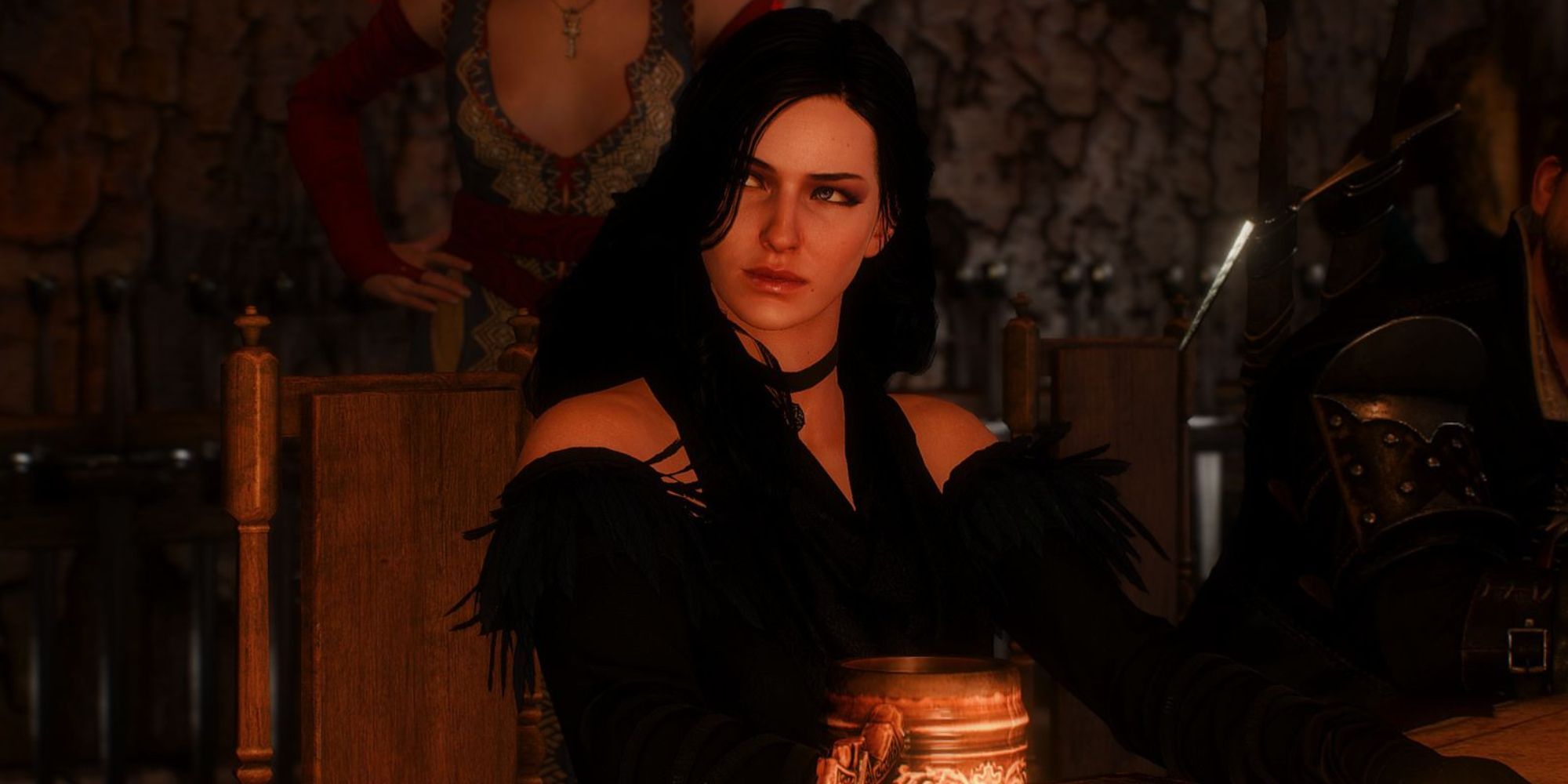CD Projekt Red is a gaming behemoth. With over a thousand employees, CDPR has become one of the biggest studios in the world on the back of The Witcher’s success. But even with the biggest studios, it’s not uncommon to see veteran talent break off to forge their own path in the industry, and that’s precisely how Blank (stylised Blank.) was formed last month.
Mateusz Kanik, Game Director on both Cyberpunk 2077 and The Witcher 3, co-founded Blank with Jędrzej Mróz (CDPR), Marcin Jefimow (CDPR, 11-Bit), and Mikołaj Marchewka (Rookiez from Warsaw). Much of the senior staff already on board also passed through CD Projekt Red during their careers.
I sat down with Kanik and Jefimow to discuss the formation of Blank. It’s never an easy choice to leave the security of a highly successful triple-A developer for a significantly riskier venture. Despite this, the pair has full belief in their project and are reasonably confident in Blank’s chances of success.
Kanik spent 15 years at CDPR, and will be the game director on Blank’s debut title. He provided his rationale for leaving the company he spent so much time at. “After 15 years, you start thinking about challenging yourself and changing something in your life. I’ve been thinking for some time that I wanted to make a different type of game,” he began. “While the industry is saying ‘bigger is better’, I want to focus on filmic games, with an emotional story and craftsmanship. Something that’s polished and refined. That is not doable in open-world games, in my opinion. In complex RPG games, you have so many systems that have to work in different scenarios in these huge games, they end up becoming generic and clunky. It’s not possible to achieve this huge scale with proper polish and refinement. Even for the biggest companies in the world.”
Kanik isn't calling for a complete rejection of triple-A development practices, Blank is looking to take the best practices out of their long careers to pursue the best possible methods of quality-focused development. “Of course, I am taking things that I learned within CDP, like a passion for mature storytelling that triggers emotions in players. That’s what they’ll remember years after playing the game. That was the foundation for me to bring this studio to life.”
With Cyberpunk 2077 being a divisive title that was plagued by issues at launch, that’s an understandable sentiment. We have entered a culture of long post-launch development cycles as more and more developers have taken to optimising their titles after the fact. That's something that Blank wants to avoid.
Jefimow, Blank co-founder and Executive Producer, added that there isn’t a singular reason why people switched from CDPR to Blank, saying, “Everyone has a different reason. It’s not like the collective future Blank decided to make something together. I just wanted to try something different. I spent seven years there, that’s a lot of time. The dynamic of working in a huge company and a huge team, that’s totally different than what we are trying to build here.”
With CDPR’s focus squarely on the next instalment of The Witcher, you could understand the desire for a fresh challenge. While Kanik and Jefimow both love the series, they want to build their own stories and characters without the limitations placed on them by pre-existence.
“When you work on an IP that already exists, like The Witcher and Cyberpunk, when you’re a creative guy working on these games, it’s limiting for you because you are navigating inside the boundaries that someone else created for you. A new IP is unlimited for us and that’s good for the team, they have no limits, they are setting their own limits which is pretty awesome,” Kanik told me, adding that when he plays The Witcher, he just sees the bugs that players haven’t found and all the areas where the team cut content, detracting from his enjoyment.
Jefimow feels much the same way, and is looking forward to playing the next Witcher as a player, rather than a developer. “You spend so much time with a game, you’ve played through it a lot of times during work hours. When you get home, you aren’t eager to finish the game one more time.”
In Blank’s original PR statement, Kanik described the gaming industry as “increasingly conservative.” When quizzed on this statement, Kanik elaborated. “The industry is out to make money. They want to make something that’s safe, something that already exists and is proven.” It’s common sense, sequels are more of a sure thing so most high-budget triple-A’s are likely to be sequels.
Bringing the conversation back towards patch culture, Kanik talks about his childhood experiences with games. “I grew up in the 80s and 90s, I remember games on the Commodore 64, Atari and Super Nintendo," he remembers. "You had cartridges and they couldn’t be patched, the games needed to be finished and polished on release. I also remember reading gaming magazines from that era, each game was different. It was thrilling. Even Dune 1 and Dune 2 were completely different. They weren’t trying to make identical sequels.”
He adds, “So yeah, I wanted to create a studio that cherishes those old values. One that focuses on the quality of the games you are releasing, one that makes bold decisions and doesn’t look at what others are doing, one that makes something that will make players happy and feel emotions.”
Blank is also focusing a lot of their efforts on team cohesion and culture. After having worked for decades in triple-A game development, they are making efforts to set examples in sustainability and in the elimination of crunch culture, as Jefimow explains to me.
“Crunch is long periods of time of working long hours. Sometimes companies declare there is going to be no crunch or no overtime and I don’t find this to be entirely true," he begins. "You may not want overtime, but this is a creative environment and sometimes people are committed to pushing for quality and we’re not going to drag them out of the office building. It’s going to be demotivating to be limited and controlled every step of the way. The key is to convince them to take a rest tomorrow or the day after, to find something that works for both sides.”
Kanik added that Blank has a saying: “burnout is not a badge of honour.” You want to let people deliver the quality they want to but also ensure they have a healthy work/life balance. Blank wants everyone to be open about their needs so a healthy creative culture can be cultivated.
At present, Blank is entirely self-funded but Jefimow told me they will be looking for partnerships in the future, so the team could focus solely on game development. The team, currently 10, is looking to expand to 60 as development progresses. They are currently renting an office in Warsaw but are completely open to remote work as the team expands.
As for Blank’s debut title, the details are very scarce. The game’s blurb reads, “A character-driven game set in an apocalypse - with a twist or two.” I wasn’t able to pry much out of the pair except that they are excited to show off what they’re creating when the time is right.
“We have a few unique things in the closet in terms of what we’re cooking here," Kanik tells me. "I cannot share the details obviously, but I believe we are doing something extraordinary.”
When all is said and done, Kanik wants players to remember the emotions they felt while playing the game. Jefimow expressed a similar sentiment, saying they just wanted their game to be meaningful.




